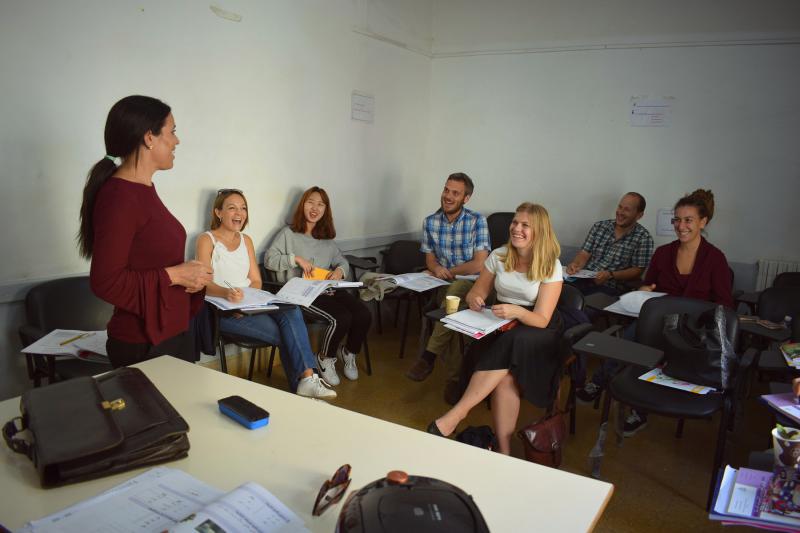
Whether you are a beginner or an advanced learner, studying Arabic in Tunisia can be a rewarding cultural and linguistic journey.
Tunisia’s official language is Modern Standard Arabic (MSA), used in media, education, and formal communication. However, the daily spoken language is Tunisian Arabic (Derja), a dialect that blends classical Arabic with Berber, French, and Italian influences. Learning Arabic here gives you access to:
Modern Standard Arabic: Essential for reading newspapers, literature, and understanding formal contexts across the Arab world.
Tunisian Dialect: Helps you communicate naturally with locals and gain insights into everyday life and culture.
Compared to Middle Eastern countries, Tunisia offers high-quality language courses at more affordable prices. Many language schools provide:
Intensive Arabic programs tailored to all levels.
Cultural immersion activities like cooking, music, and calligraphy workshops.
Experienced native-speaking instructors passionate about teaching Arabic.
Tunisia’s population is generally fluent in Arabic, French, and increasingly English. This multilingual environment makes it easier for beginners to start learning Arabic while having support in French or English if needed.
Tunisia’s history stretches from Carthaginian times to Roman, Arab, Ottoman, and French periods. Learning Arabic here means you are surrounded by ancient ruins, historic medinas, and vibrant markets — providing endless real-life contexts to practice your language skills.
Tunis is the best place to start your Arabic learning journey. The city offers:
Renowned language centers such as Institut Bourguiba des Langues Vivantes and Centre Culturel Arabe.
Access to cultural sites like the Medina of Tunis, a UNESCO World Heritage site.
Opportunities to practice with locals in cafes, souks, and public spaces.
Sfax is an excellent choice for students interested in business Arabic and a more local experience. It’s less touristy and offers more authentic immersion.
These cities are great for combining learning with leisure. They host language schools with programs for all levels and are ideal for summer intensive courses.
The formal written and spoken language of news, education, and official communication.
Vital for understanding books, newspapers, and pan-Arab media.
The colloquial dialect spoken daily by Tunisians.
Perfect for conversational fluency and understanding local culture.
Primarily for religious studies or deep literary interests.
Some language centers offer specialized courses.
Immerse yourself fully: Use Arabic in daily interactions—ordering food, shopping, or chatting with locals.
Join cultural activities: Participate in music, cooking, or calligraphy workshops offered by language schools.
Practice consistently: Make use of language exchange meetups or tandem learning with Tunisian students.
Use multimedia: Watch Tunisian TV, listen to local music, or follow Arabic social media channels.
Dialect variation: Tunisian Arabic differs from other dialects. Focus on MSA if you want a more universally understood form of Arabic, but embrace the dialect for local interactions.
Script learning: Arabic script might be challenging initially. Dedicate time to learning the alphabet and practicing writing.
Pace yourself: Arabic is a complex language. Set realistic goals and celebrate small victories.
Learning Arabic in Tunisia is not just about mastering a language; it’s about connecting with a fascinating culture, history, and people. Tunisia’s welcoming environment, rich heritage, and diverse linguistic landscape make it an ideal destination for anyone eager to learn Arabic authentically.
Whether you want to pursue Arabic for academic, professional, or personal reasons, Tunisia offers an enriching experience that combines language learning with unforgettable cultural adventures.